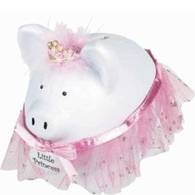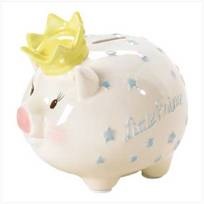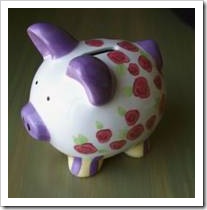 In many areas of life, we relive the same pattern over and over again, but we do not notice it. Just like riding a bike (the ultimate cliché about automatic habits), we pedal on, completely oblivious to each up and down movement.
In many areas of life, we relive the same pattern over and over again, but we do not notice it. Just like riding a bike (the ultimate cliché about automatic habits), we pedal on, completely oblivious to each up and down movement.
Sometimes, circumstances make us take note of our patterns and we start thinking about them. Rarely, we change these ingrained ways of behavior and our life changes as a result, hopefully for the better.
Anthony Robbins compares human beings to thermostats. He says every person has a sense of where they feel comfortable and does many things subconsciously to stay there. Sure, everyone knows what would be better, but too good is also uncomfortable, because it does not fit our sense of identity and self worth.
So each of us lives within a certain range of “temperatures”. When it gets to “cold”, we take some action to “warm up”. When it gets too “hot”, we procrastinate for a while and even sabotage our previous efforts, until it is “nice and cozy” again.
 One particular area in which this happens to us is our finances.
One particular area in which this happens to us is our finances.
You may be thinking, “No way, man! I work my butt off every day to make money. There is nothing more I could do. What are you talking about?”
Well, this is what I mean by “subconscious”. Most people never do anything deliberately to have less money, but they do keep themselves in their financial comfort zone nevertheless through actions they do without thinking or planning.
Here is an example of how this works. You grow up with a father who works hard and earns a steady but average wage and a mother who stays at home and does her best to keep the house and the kids in good shape. You have 2 siblings and a dog. Your dad talks day in and day out about how work is controlling him and your mom talks about chasing sales and trying to reduce expenses.
Growing up as a kid, you do not know any different, so you accept this as “life”. If you are a boy, you aim to work hard and earn a steady but average wage, while complaining about being controlled by your work. If you are a girl, you aim to keep a house and kids in good shape, while doing your best to minimize expenses. You plan to have 3 kids and a dog.
 Have a look at the example above and try to find at least 2 things you could do differently to change your financial position.
Have a look at the example above and try to find at least 2 things you could do differently to change your financial position.
Now, find 2 things that would change your emotional position.
There are always options, boys and girls, but we just cannot see them, because we are otherwise occupied.
So what happens to someone who works hard for average wage and hears about a golden business opportunity? What happens when he is offered a promotion to a strategic managerial position with an expense account and higher pay?
More than likely, such a person will find some excellent reasons why the business opportunity is terribly risky and why he is not suitable for that promotion. It just does not feel comfortable being in that new position. It creates a mismatch with his identity. So he turns them down and goes on living in the safety of the comfort zone.
What happens when the economy improves, he gets a pay rise and money is starting to pile in the bank account? More than likely, he spends it on a home renovation, eating out, a car or a trip, until the balance comes back to a “comfortable” level.
In the same way, when things are bad, he stays back at work and puts in more hours to bring the balance up to where it “should be”.
 Excuse me, does this have anything to do with parenting?
Excuse me, does this have anything to do with parenting?
Yes, of course.
Now that you know you have a sense of financial identity and you know how you developed it, you can easily see your kids are growing into that very same identity as we speak (write/read?).
All the parents I have met want the world to be a better place for their kids. How is this going to work if we propagate the same financial identity as our parents did?
It is not. We have to do something differently. In the same way that happy parents raise happy kids, parents with a strong financial identity raise kids with a strong financial identity.
Possibly the quickest way to start doing this is by writing down your current situation. Do this with your partner if you have one. Answer the following questions:
- How do I earn money?
- How easily do I earn money?
- How big is my income?
- How big are my expenses?
- How do I spend my money (plan, sales, impulse, brand names)?
- How much of my income do I save?
- What do I save for?
- How much of my income do I invest?
- How do I invest my money?
- How do I manage my finances?
- What are my financial goals?
- How much financial education do I have?
- How do I feel about money?
- How much money do I deserve?
 Now, compare this to how you grew up. You may be doing things better than your parents did. If you are, well done. Either way, I am sure you will see the source of your financial identity and gain valuable perspective into how you got to where you are today. Looking back with grownup eyes, you see things differently.
Now, compare this to how you grew up. You may be doing things better than your parents did. If you are, well done. Either way, I am sure you will see the source of your financial identity and gain valuable perspective into how you got to where you are today. Looking back with grownup eyes, you see things differently.
Next, answer the very same questions, only this time, be in the financial position you wish you could be in 5 or 10 years. Find someone to emulate who is already in that position – this can be a personal acquaintance or a famous person in a detailed biography – and decide what you want to do the same in order to improve your own position.
Pay close attention to the last 2 questions, because they will give you wings or clip the ones you have. Use your kids as leverage here, as in, “I deserve to have lots of money, so that my kids can have a great life and learn to be financially free” (or whatever your own goals might be). Remember that your current financial identity was created for you in the course of your life, but now that you are aware of it, you are free to change it.
Finally, make a list of things you can start doing differently right now to get things moving. When you are done with this list, make the next one and do it too, and so on.
Quick tip
 Our sense of identity is a stubborn devil, so it may be best to start with changes that are hard to notice. The most convenient way to measure your financial status is to keep all your money in one place and follow that balance. This makes you take corrective action quickly, not always in the best direction.
Our sense of identity is a stubborn devil, so it may be best to start with changes that are hard to notice. The most convenient way to measure your financial status is to keep all your money in one place and follow that balance. This makes you take corrective action quickly, not always in the best direction.
On the other hand, if you buy a property, or any other long-term investment, and it goes up in value, this does not affect your account balance, so you can keep feeling the same as before, while your financial position improves.
In fact, you can cheat yourself into doing better by always keeping your account balance below your comfort level and using the money wisely. Do this automatically, so you cannot see the money flowing away, and keep yourself busy trying to fill that account up.
Enjoy the ride!
Gal
No posts found








